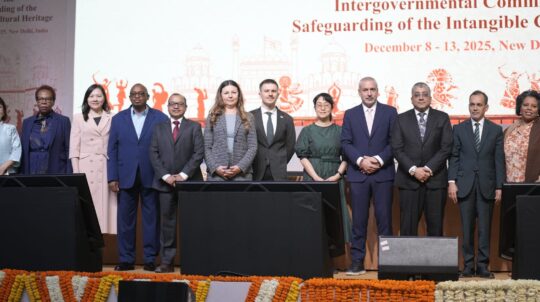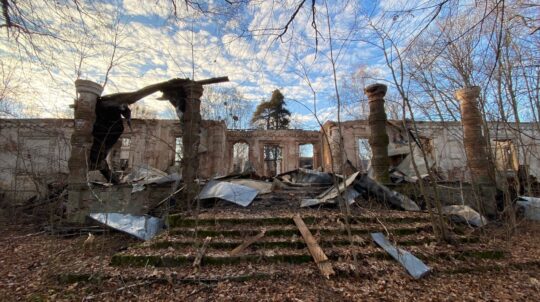On September 13, as part of the Cultural Platform “UKRAINE IS OPEN TO THE WORLD,” a discussion titled “Ukrainian Culture — A Voice in Times of War” took place. The discussion was moderated by Mykola Tochytskyi, the Minister of Culture and Strategic Communications of Ukraine.
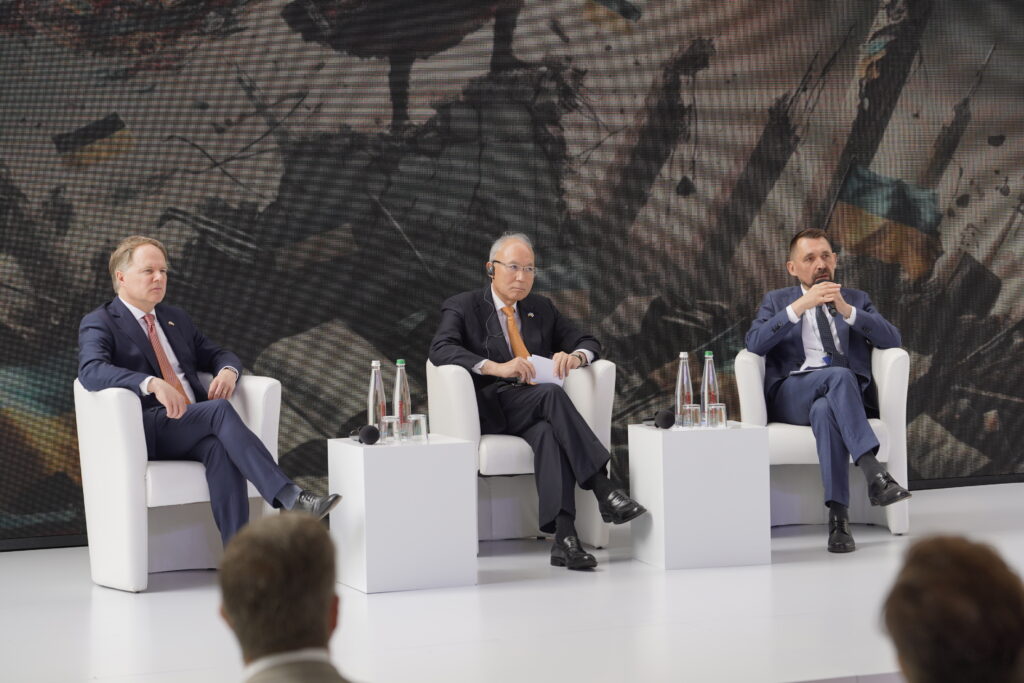
He emphasized that the Ministry of Culture and Strategic Communications of Ukraine, along with the business sector, should work to preserve Ukrainian heritage and identity.
“Ukrainian identity needs to be clearly communicated to our friends, allies, and partners. The Ministry will strive to be a partner to everyone. Without partnership, I don’t think we will achieve much,” said Mykola Tochytskyi.
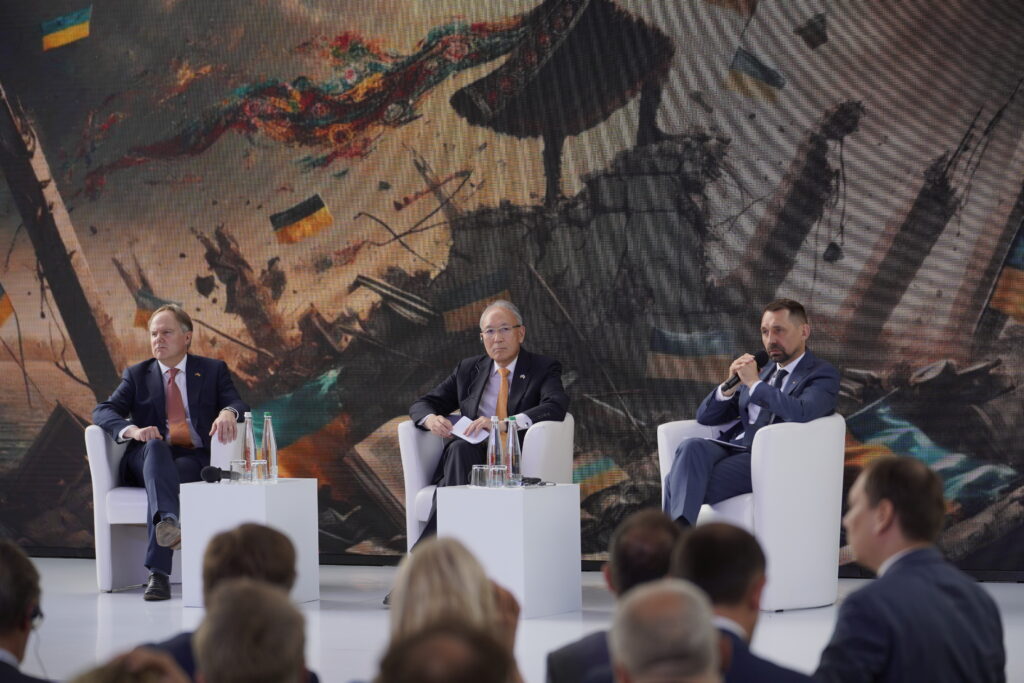
The Minister assured that the state will do everything possible to make the slogan “Ukraine is Open to the World” become “The World is Open to Ukraine.”
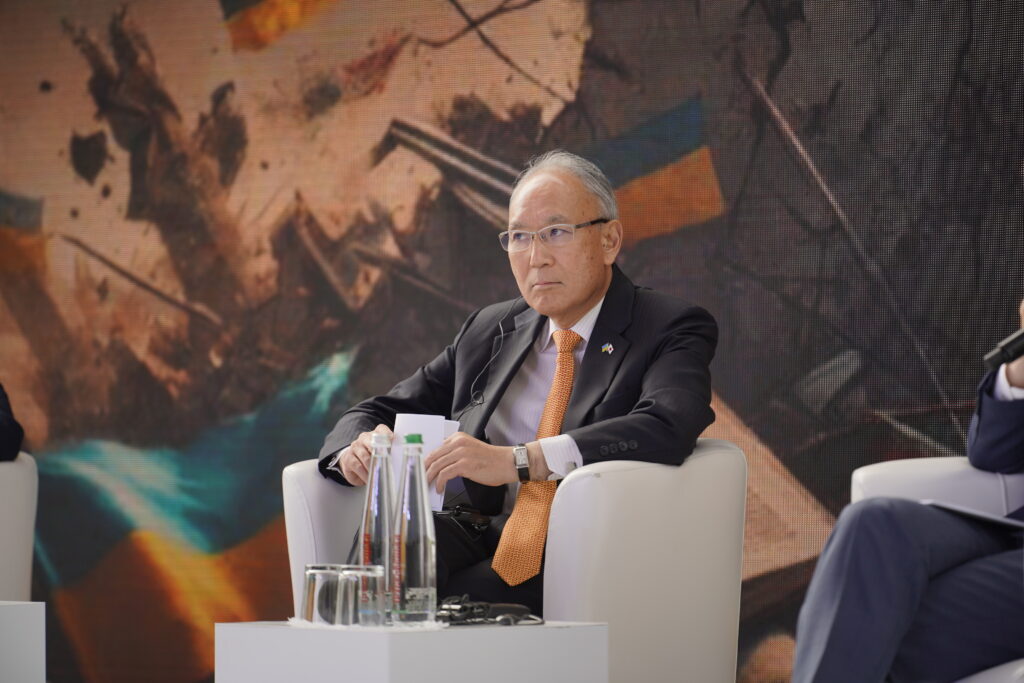
Ambassador of Japan Matsuda Kuninori emphasized that there are many commonalities between Ukraine and Japan, including the similar heritage of samurai and Cossacks. He noted that Ukraine is located in the west and Japan in the east of the Eurasian continent.
“There are many incorrect states between us, which generate so many problems, wars, injustices, and hatred. This unites us,” highlighted Matsuda Kuninori.
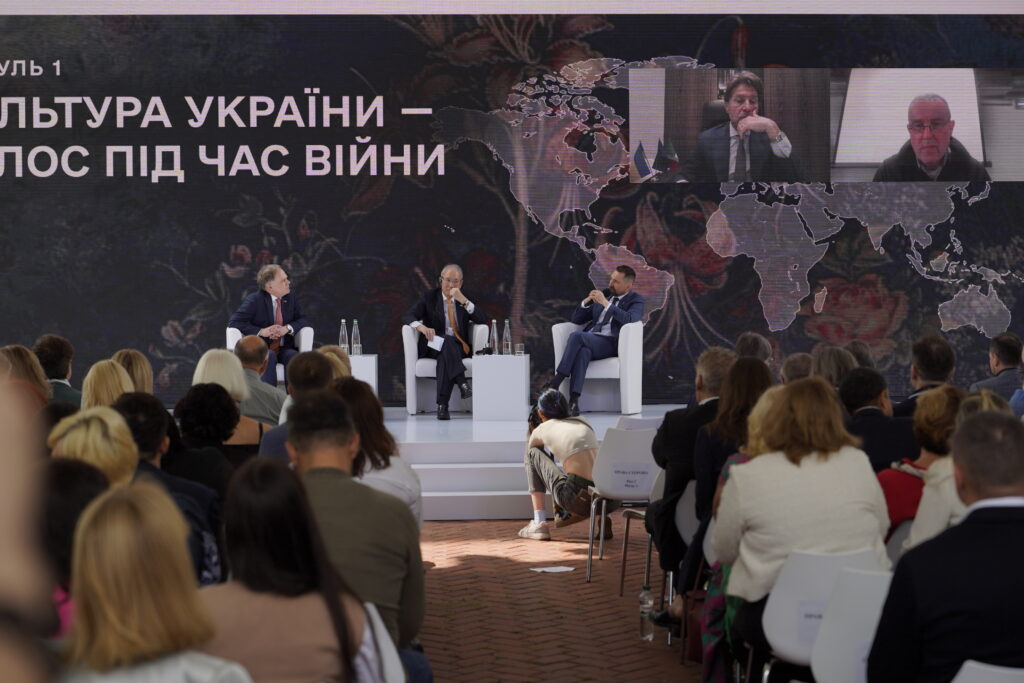
The diplomat also shared that Japan’s defense budget is 1% of GDP, while the budget for culture is significantly higher, highlighting its importance to the country. He views the development of tourism as the key to Ukraine’s future success.
Ambassador of Italy Carlo Formosa, speaking online from Odesa, noted that Italy officially spends 1% of GDP on culture, with 1.5 million people employed in the creative industry and most UNESCO World Heritage sites located in Italy. He pointed out that, according to Italian experience, the cultural industry in Italy received a boost after the wars in which Italy was involved.
“We understand the value of culture and the importance of preserving it. That’s why I am in Odesa as part of a patronage mission to create various areas of cooperation – urban planning, capacity building, and other fields – not only to preserve but also to create opportunities for cultural impact,” he said.
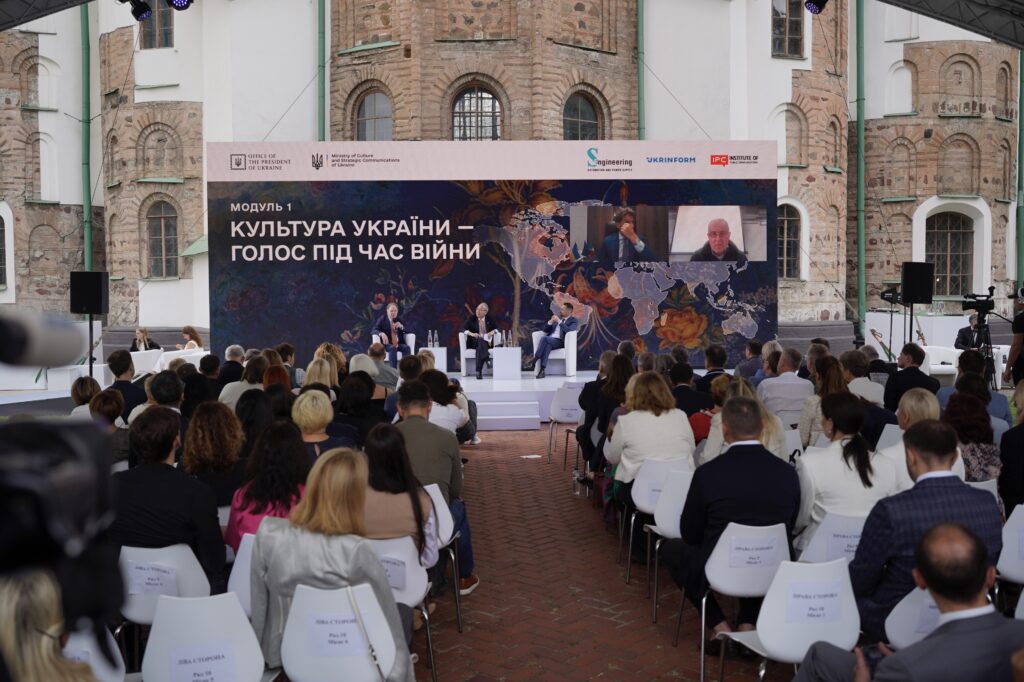
Ambassador of Belgium to Ukraine, Luc Jacobs, stated that the cultural connections between Ukraine and Europe are “very evident,” citing the industrialization of eastern Ukraine by Western investors as an example.
“This is not Stalin’s work – it’s the work of foreign investments coming from Belgium, France, Great Britain, and Switzerland. After just a month in Kyiv, I see that the interest in this is still very, very alive, and I look forward to continuing this work,” he said.
British Ambassador to Ukraine, Martin Harris, reminded of the projects between Ukraine and the UK aimed at promoting Ukrainian culture and called Ukrainian culture critically important. He emphasized the need to promote Ukrainian culture now: “Because we know that through culture, Ukrainians are currently resisting the russian federation,” he stated.
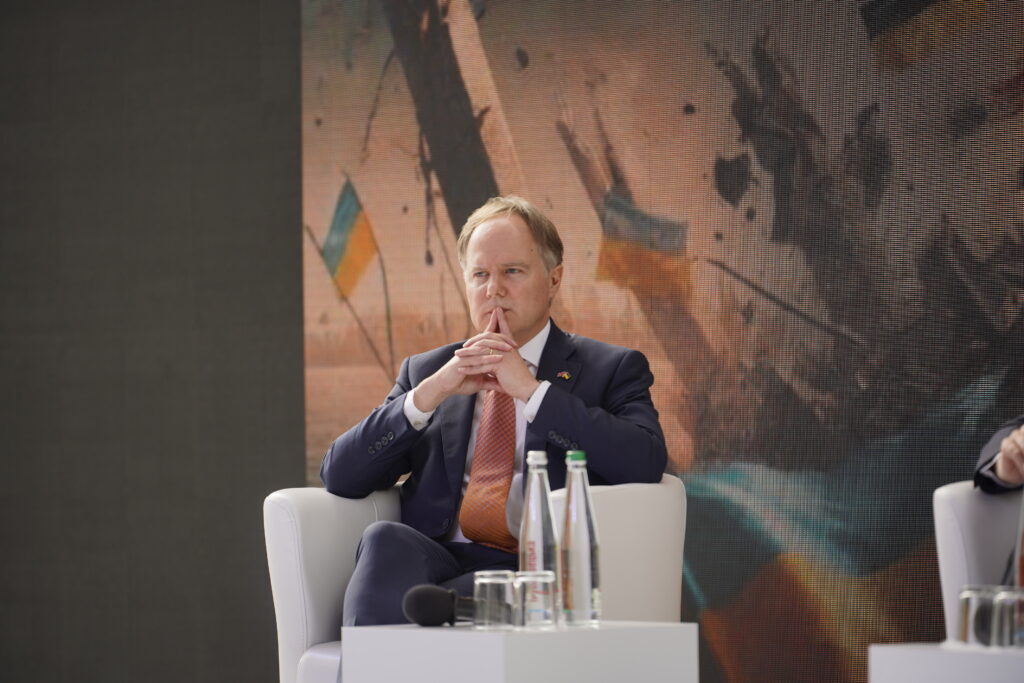
Martin Harris emphasized that now is the moment when the revival of Ukrainian culture can be shared globally. “It is very important to seize this opportunity, this moment, to promote Ukrainian culture in the UK and Europe,” the diplomat underscored.
The goal of the Cultural Platform is to address the promotion of Ukrainian culture worldwide, create a positive image, and promote cultural products to international partners. It also aims to find a place for Ukrainian culture in global diversity, combine and exchange experiences in cultural promotion, analyze successful and interesting Ukrainian cultural cases, and expand the circle of supporters of Ukraine and its culture during the war.
